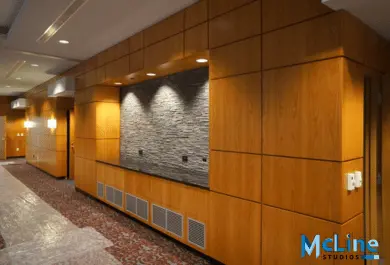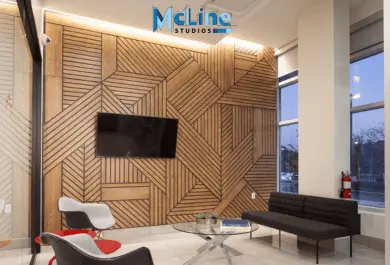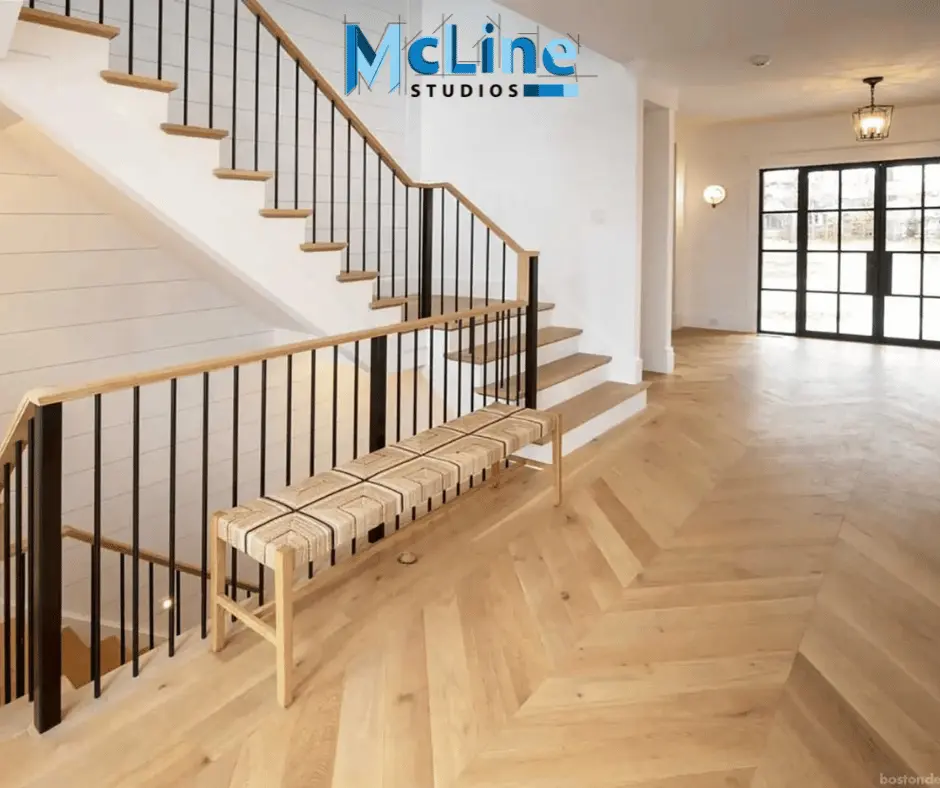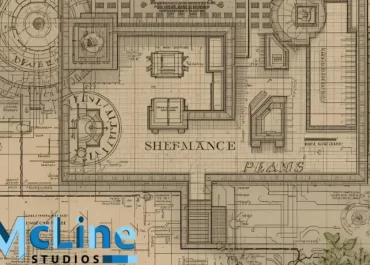Custom millwork offers a level of craftsmanship and personalization that sets projects apart from the ordinary. Whether for residential or commercial spaces, custom millwork enhances the aesthetic appeal, functionality, and overall quality of a build.
For builders, incorporating custom millwork allows them to create truly unique and tailored spaces that cater to the specific needs and preferences of their clients.
With cabinetry and built-ins to stunning architectural elements like crown moldings and wainscoting, custom millwork adds a level of sophistication and character that simply cannot be achieved with off-the-shelf solutions.
Businesses, too, can greatly benefit from the integration of custom millwork. In retail environments, custom millwork can enhance the brand experience, creating a cohesive and memorable atmosphere that resonates with customers. In offices, custom millwork can optimize space utilization while promoting a productive and visually appealing work environment.
With the ability to work with a vast array of materials, from traditional woods to modern composites, custom millwork offers virtually limitless design possibilities.
As builders and businesses seek to differentiate themselves and create spaces that truly stand out, the importance and relevance of custom millwork cannot be overstated.

Reasons Why Custom Millwork Is Essential For Builders
Custom millwork plays several important roles in both residential and commercial construction projects:
- Unique Design: Custom millwork allows for the creation of unique and bespoke designs tailored to the specific needs and preferences of the client. Whether it’s intricate moldings, custom cabinetry, or unique trim work, custom millwork adds character and personality to a space that standard, off-the-shelf options cannot match.
- Quality and Craftsmanship: Custom millwork is typically crafted with attention to detail and high-quality materials. Skilled artisans and craftsmen often handle custom millwork projects, ensuring superior quality and craftsmanship compared to mass-produced alternatives.
- Precise Fit: Custom millwork is made to measure, ensuring a precise fit within the space it’s intended for. This results in seamless integration with architectural features and maximizes the functionality of the space.
- Enhanced Aesthetics: Custom millwork can significantly enhance the aesthetics of a space, adding visual interest, elegance, and sophistication. Whether it’s ornate trim work, custom-built furniture, or intricate paneling, millwork can elevate the overall design aesthetic of a room or building.
- Flexibility and Versatility: Custom millwork offers greater flexibility and versatility in design options compared to standard, mass-produced alternatives. Clients have the freedom to choose from a wide range of materials, finishes, and design elements to achieve their desired look and feel.
- Value Addition: Well-crafted custom millwork can increase the value of a property. Unique and high-quality millwork can set a property apart from others, making it more attractive to potential buyers or tenants.
- Tailored Functionality: Custom millwork can be designed to meet specific functional requirements, such as built-in storage solutions, specialized workspaces, or unique architectural features. This tailored functionality can greatly enhance the usability and efficiency of a space.
Challenges For Custom Millwork
Custom millwork, while offering the advantage of tailored solutions, comes with its own set of challenges:
- Design Complexity: Each custom millwork project is unique, requiring detailed design considerations to meet the client’s specifications. This complexity can increase the time and effort required for design development.
- Material Selection: Choosing the right materials is crucial for achieving the desired aesthetics, durability, and functionality. However, sourcing unique or specialty materials for custom projects can be challenging and may impact costs.
- Cost Management: Custom millwork can be more expensive than pre-fabricated options due to the personalized nature of the work, as well as the quality of materials and craftsmanship involved. Managing costs while meeting client expectations can be a balancing act.
- Lead Times: Custom millwork often requires longer lead times compared to off-the-shelf products, as each piece is fabricated to order. Delays in production or shipping can impact project timelines, requiring careful planning and communication.
- Installation Challenges: Installing custom millwork can be complex, especially in spaces with unique dimensions or existing architectural features. Coordination between the millwork fabricator and the installation team is essential to ensure a seamless installation process.
- Quality Control: Maintaining high standards of quality control throughout the fabrication process is crucial to ensuring that the finished product meets both aesthetic and functional requirements. This includes thorough inspections of materials, workmanship, and finishes.
- Regulatory Compliance: Custom millwork projects must adhere to building codes, industry standards, and regulations governing materials, safety, and accessibility. Ensuring compliance requires knowledge of relevant codes and regular updates on any changes or revisions.
- Sustainability: As environmental concerns become increasingly important, there is a growing emphasis on sustainability in the construction industry. Choosing sustainable materials and practices for custom millwork can present additional challenges but is essential for minimizing environmental impact.

The End Note
To sum it up, custom millwork isn’t just about wood and design – it’s about crafting spaces that resonate with people on a deeper level. Custom millwork also allows builders and businesses to break free from the mold and create environments that are as unique as the individuals who inhabit them.
When someone steps into a space with exquisite millwork, they can feel the passion and artistry that went into its creation. It’s a tangible reminder that they are surrounded by something special, something crafted just for them.
But custom millwork isn’t just about aesthetics; it’s about longevity and adaptability too. As our needs and styles evolve, custom millwork can be modified and reimagined, ensuring that our spaces remain relevant and inspiring for years to come.




